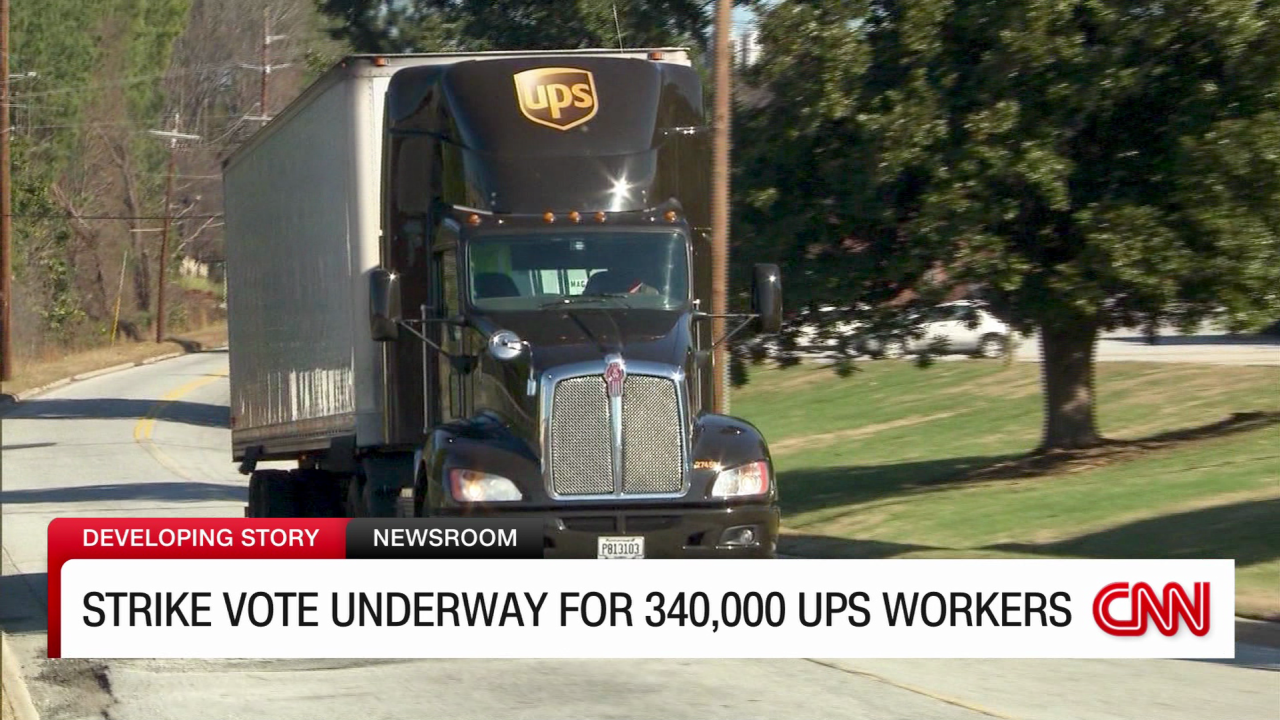A marathon negotiating session between UPS and the Teamsters union ended early Wednesday morning with both sides accusing the other of walking away from the table. There are no signs of a contract settlement in sight.
The current contract expires July 31, which means 340,000 UPS workers could go on strike August 1. The two sides had been trying to reach a deal to stop nervous UPS customers from starting to move their business to rival delivery services including the US Postal Service and nonunion FedEx.
Despite a strike deadline being almost four weeks away, some customers are likely to sign long-term deals with UPS competitors by the end of this week if there is not a tentative agreement between the two sides, said Satish Jindel, president of ShipMatrix, a software provider that works with parcel shippers. Many in the shipping community had been looking for a deal between UPS and the teamsters by the end of the July 4 holiday weekend, he said.
“This is a negative development,” he said about the lack of a deal. “If they don’t have a handshake this week, both UPS and Teamsters will pay a price.”
Jindel said that during that last strike at UPS in 1997, the company was able to recapture 90% of its business once the strike ended. He said it might be able to only recover 70% of its business in a strike this time because of a greater number of alternatives. FedEx did not have a lower-cost ground service in 1997, and the Postal Service was not set up to handle as many package deliveries. Amazon also has its own delivery service now.
“The clock is ticking faster now than it was last week,” he said.
The two sides had previously said there had been agreement on a large number of issues already, including UPS promising to start buying only air conditioned delivery vans, which currently do not have air conditioning, and to retrofit its existing fleet of 95,000 vehicles with some features to reduce the heat in the cargo area. The union said that beyond comfort, the high heat in the vans poses a safety risk for its members.
But the union said its negotiating committee has unanimously rejected the company’s most recent economic offer. It accused the company of breaking off talks.
“This multibillion-dollar corporation has plenty to give American workers — they just don’t want to,” said Teamsters President Sean O’Brien. “UPS had a choice to make, and they have clearly chosen to go down the wrong road.”
The company said it made a “historic offer” to the union that would be a win for the Teamster members at the company. It said it is willing to continue negotiations and called on the union to return to the table.
“We have nearly a month left to negotiate. We have not walked away, and the union has a responsibility to remain at the table,” said the company’s statement. “Refusing to negotiate, especially when the finish line is in sight, creates significant unease among employees and customers and threatens to disrupt the US economy. Only our non-union competitors benefit from the Teamsters’ actions.”
What’s on the table?
Neither side has publicly detailed the economic offer that UPS made or what the Teamsters are demanding. UPS said it has already agreed to one key union demand is to eliminate a two-tier wage scale that was put in place during the current five-year contract to help UPS expand its delivery service to six days a week, up from five days. Those now being paid at a lower pay scale would be converted to regular, full-time pay scale with a Tuesday to Saturday work schedule, the company said.
The union points to record profits that UPS recorded in recent years, which have nearly doubled during the five-year life of the current contract, from an adjusted net income of $6.3 billion in 2018 to $11.3 billion on that basis last year. The surge in online purchases that started during the height of the pandemic drove record package delivery volumes for UPS and other delivery services.
But UPS profit, revenue and volumes fell in the first quarter compared to a year earlier as the company warned it is seeing signs of a slowdown in the economy that could hit shipments.
The union says it wants the company to put forth its “best, last and final offer” so that it can take it to membership, but it said the company told union negotiators it had nothing more to offer.
UPS delivered 18.7 million domestic packages a day in the first three months of the year, and it will be difficult to move that volume on other carriers. About 6% of US gross domestic product, the broadest measure of its economic activity, moves on UPS trucks.

























